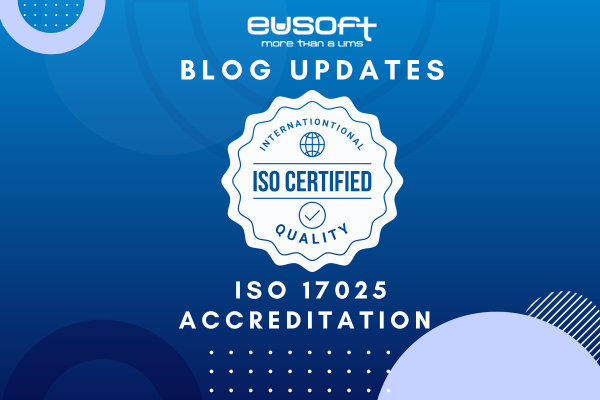The ISO 17025 standard is an international standard that ensures the quality and reliability of measurement, inspection, testing, and calibration processes in laboratories. It covers all aspects of laboratory management, including equipment selection, planning, implementation and operation of the laboratory, staff training, document management system, internal controls for quality assurance, and staff safety.
ISO 17025 Main Areas
ISO 17025 focuses on three main areas: competence, management, and safety. Competence refers to the laboratory’s understanding of its processes and taking appropriate measures to ensure that these processes are correctly executed by all involved personnel. Management includes policies, structures, and procedures that contribute to maintaining high standards within the organization. Safety concerns traffic safety programs, as well as personnel safety.
ISO 17025 certification phases
The ISO 17025 certification requires several phases, including the request phase, examination phase, and approval of final test results by a laboratory or an independent body.
The accreditation is a sign of quality, commitment to the highest standards, reliability, and credibility for the laboratory.
Eusoft.Lab LIMS SaaS and the accreditation process
To obtain ISO 17025 accreditation, it is important to use a Laboratory Information Management System (LIMS) that manages the laboratory and complies with regulations. Eusoft.Lab LIMS is an ideal solution to manage the laboratory, with an easy-to-use interface, integrated reporting capabilities, customizable design, and a secure platform to protect data from unauthorized users.
How LIMS ensure accreditation
The use of a LIMS can effectively facilitate and speed up the accreditation process. Here are some reasons:
- Efficient data management: A LIMS enables efficient management of all data related to laboratory activities, such as sample information, test results, and personnel information. Efficient data management can help reduce the risk of errors and ensure data consistency, thus increasing the quality and reliability of test results.
- Document control: A LIMS can help ensure compliance with ISO 17025 regulations through document control. The system allows centralized management of documents required for accreditation, such as quality manuals, policies, and procedures, simplifying their management and reducing the risk of errors.
- Process automation: A LIMS can automate laboratory processes, reducing execution times and increasing productivity. For example, the system can automate test requests management, exam planning, task assignment, and test result delivery, simplifying the work of technicians and reducing the risk of errors.
- Traceability and audit trail: A LIMS allows monitoring and recording of all activities carried out within the laboratory, thus creating a complete traceability of tests and results. Activity recording can be used as evidence of compliance with ISO 17025 regulations and as an audit trail in case of disputes or compliance issues.
In general, a LIMS can help simplify the ISO 17025 accreditation process by providing a centralized data and documentation management system, process automation, and complete traceability of activities. The use of a LIMS such as Eusoft.Lab LIMS can help ensure quality, reliability, and compliance with ISO 17025 regulations of the laboratory, increasing the credibility and confidence of customers and accreditation bodies.
In conclusion
ISO 17025 accreditation is an important process to ensure the quality and reliability of measurement, inspection, testing, and calibration processes in laboratories. Using a LIMS such as Eusoft.Lab LIMS can help simplify the accreditation process and ensure compliance with standards.




